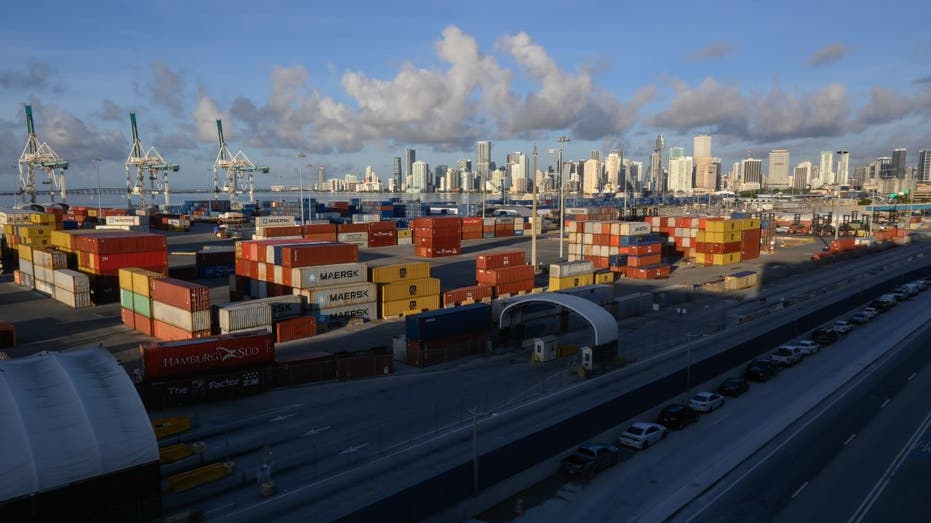Unionized dockworkers at East Coast and Gulf Coast ports began a strike Monday that will affect the flow of goods through ports that handle about half of seaborne trade to the U.S. and could have an impact on food prices.
Ports affected by the International Longshoremen’s Association strike are key hubs for food imports from places like South America and Central America. For example, about two-thirds of bananas arrive at East Coast and Gulf Coast ports.
The U.S. Department of Agriculture (USDA) released a statement Tuesday saying it doesn’t anticipate food prices will be significantly affected by the port strike in the near term.
“Our analysis shows we should not expect significant changes to food prices or availability in the near term,” the USDA said. “Thanks to the typically smooth movement through the ports of goods, and our strong domestic agricultural production, we do not expect shortages anytime in the near future for most items. Likewise, non-containerized bulk export shipments, including grains, would be unaffected by this strike.
DOCKWORKERS GO ON STRIKE AT EAST AND GULF COAST PORTS
“For meat and poultry items that are exported through East Coast and Gulf Coast ports, available storage space and redirection of products to alternative domestic and international markets can alleviate some of the pressure on farmers and food processors.
“We are keeping an eye on downstream impacts in the west, and we will continue to monitor and work with industry to respond to potential impacts.”
PORT STRIKE: CAN WEST COAST PORTS ABSORB EAST AND GULF COAST IMPORT VOLUMES?

Alexander Field, an economics professor at Santa Clara University’s Leavey School of Business, told FOX Business perishable food items would be among the sensitive categories of products to price increases or shortages due to the strike.
“If there is an impact … it will be on perishables, perishable food — that being the immediate one as opposed to some of the other categories such as cars and trucks, machinery, furniture, clothes, etc.,” Field said.
“But if the strike endures, that can happen, and that will produce shortages. The shortages will produce upward pressure on prices, which means the inflation rate rises. And if it continues, it has the potential to push up the unemployment rate and slow the growth of GDP.”
WHAT PRODUCTS WOULD BE DISRUPTED BY A PORT STRIKE?

Volodymyr Babich, professor of operations and analytics at Georgetown University’s McDonough School of Business, told FOX Business, “Retailers typically hold inventory that can help them manage short-term disruptions. However, most do not have sufficient stock to meet demand for an extended period, especially over several weeks. This is particularly true for perishable items, such as bananas, which have a limited shelf life.”
Babich added that while businesses can look to reroute shipments or use alternative means, such as air freight, there are also “significant risks” to supply chains.
“A prolonged disruption at U.S. ports, both due to the strike and the congestion that will follow, could send shockwaves through global supply chains. We may see opportunistic price increases by some retailers, panic buying and hoarding by both businesses and consumers, even for products that are not directly impacted by the strike,” Babich said.
Read the full article here
















